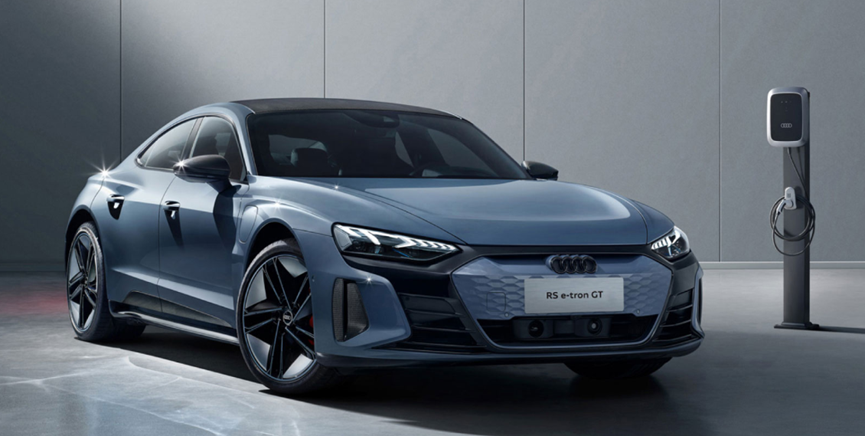Audi's Push for EV Production in China Amid Challenges
Audi is making concerted efforts to ramp up electric vehicle (EV) production at its new factory in Changchun, China, as part of its broader strategy to capture a larger share of the rapidly growing Chinese EV market. However, the journey has not been without its hurdles.

Changchun Factory Struggles with Production
Despite opening its doors at the end of 2024, Audi's new factory in Changchun has yet to reach its full operational capacity. Reports suggest that production this year may only reach 20,000 vehicles, significantly below expectations. Technical issues, particularly with the Cariad software, have been cited as major obstacles. The highly automated facility, which is part of the Audi FAW New Energy Automobile Company, is designed to produce the all-electric Q6L and A6L models, an SUV and a sedan respectively. However, the factory's operations have been slower and more costly than typical Chinese automotive plants, according to insiders quoted by the German business publication Manager Magazin.
Software and Profitability Concerns
The problems extend beyond production speed. The E3 1.2 software from Cariad, which is crucial for the Q6L and A6L, has reportedly caused significant delays and remains prone to errors. Audi is also grappling with concerns over battery control and profit margins, as Chinese competitors increasingly offer software-defined vehicles at competitive prices.
Production Continues Amid Challenges
Despite these challenges, production at the Changchun factory continues. According to Manager Magazin, vehicles produced may be temporarily stored until a fault-free software version is available. Audi is also considering starting with a stripped-down version of the software to mitigate delays.
Joint Venture and Strategic Importance
The Changchun factory, which opened shortly before Christmas, symbolizes Audi's commitment to catching up in China's EV market. Operated jointly by Audi and FAW, the facility marks a significant milestone as Audi's first majority-owned Chinese joint venture within the Volkswagen Group. Audi holds 55% of the shares in Audi FAW New Energy Automobile Company, with FAW holding 40% and Volkswagen 5%.
First PPE-Based Factory in China
The Changchun plant is the first in China to produce all-electric Audi models based on the Premium Platform Electric (PPE). The Q6L e-tron, an extended version of the Q6 e-tron manufactured in Ingolstadt for the Chinese market, and a specific market-extended version of the A6 e-tron are produced here. The modifications for the Chinese market go beyond traditional extended wheelbases, with the Q6L e-tron featuring numerous design characteristics and innovations tailored for Chinese consumers.
Investment and Production Capacity
The foundation of the Changchun factory was laid in 2022, with a total investment of 2.6 billion euros. Designed to produce 150,000 vehicles annually, the factory underscores Audi's strategic importance in its electrification efforts. CEO Gernot Döllner emphasized this point at the factory's inauguration, stating, "The models produced here will play a decisive role in our local product portfolio and strengthen our position in this important market."
The foundation of the Changchun factory was laid in 2022, with a total investment of 2.6 billion euros. Designed to produce 150,000 vehicles annually, the factory underscores Audi's strategic importance in its electrification efforts. CEO Gernot Döllner emphasized this point at the factory's inauguration, stating, "The models produced here will play a decisive role in our local product portfolio and strengthen our position in this important market."
Lagging EV Sales in China
Audi's efforts come at a critical time. In 2023, Audi sold only 31,171 pure electric vehicles in China, representing less than 5% of its total new vehicle sales in the country, which stood at 729,000 units. This lags significantly behind the overall Chinese market, where electric vehicles accounted for 27% of the total market share as of November last year, and 45.6% when including plug-in hybrids. Audi currently offers the China-specific MEB models Q5 e-tron and Q4 e-tron in the country. However, due to insufficient demand, the company ceased sales of the e-tron GT in China last summer.
Hope Amid Complexity
Amid these challenges, Audi is pinning its hopes on the Audi E5 Sportback, a new sub-brand model launched at the Shanghai Auto Show in April. This vehicle, developed in collaboration with SAIC, is designed specifically for the Chinese market and even omits the traditional four rings in its branding. The E5 Sportback represents Audi's attempt to better align with local preferences and market demands, potentially offering a new pathway to success in China's competitive EV landscape.




 CONTACT US
CONTACT US ICC APP
ICC APP
